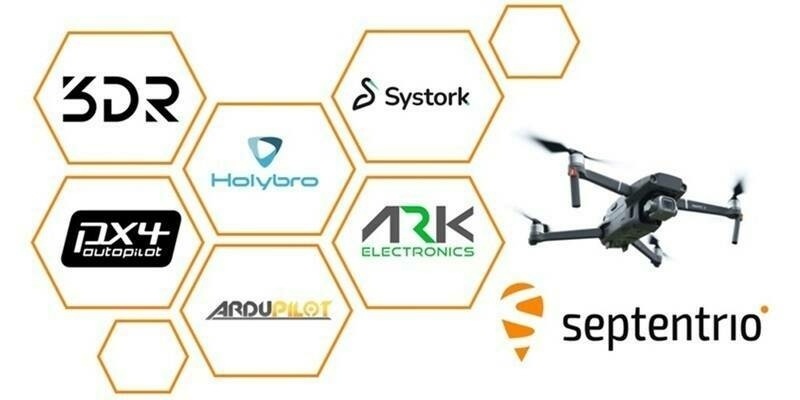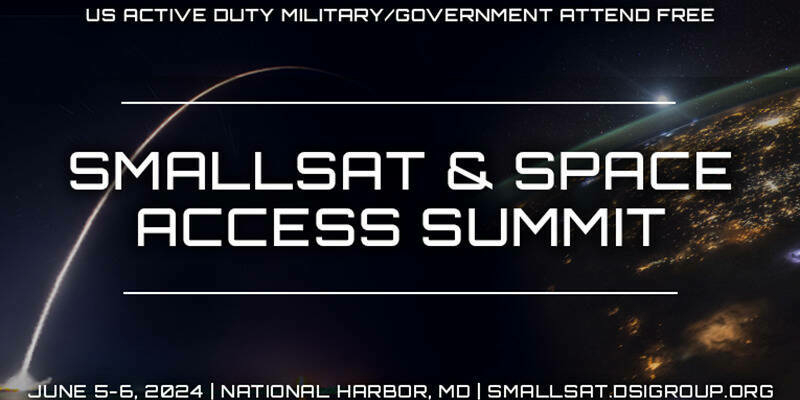Spread over three days, the main conference brings an exciting speaker lineup—from keynotes to panel discussions. Some important ones to highlights are:
Keynotes
It kicks off with a keynote from Dr. Minda Suchan, MDA’s Vice President of Geointelligence, on importance of Synthetic Aperture Radar (SAR) data. Canada is the world leader in wide area space-based radar Earth observation through the highly successful RADARSAT program, supporting numerous operational and scientific uses for SAR data. MDA, in conjunction with the Canadian government, has created an internationally recognized brand and reputation for excellence in near-real time, broad area SAR data for mission critical applications. MDA intends to build upon this success by investing in our own commercial synthetic aperture radar satellite constellation that will reinforce Canada's reputation and relevance in this area on the world stage.
If you are a spacetech enthusiast, you wouldn’t want to miss out on the address by CSA Vice-President Luc Brulé on Day 2 as he presents the agency’s oversight for program sectors, including in Space Utilization, Space Exploration, and Space Science and Technology.
And all space buffs, stay tuned for the next one on Why it Takes a Legion on Day 2 again. Here Maxar’s Executive Vice President & CTO Dr. Walter Scott will share some key insights on the next generation of Earth Intelligence arriving in 2021 with the launch of WorldView Legion, and what impact that will have for the Canadian geospatial market in the months and years ahead.
He will compare the satellite imaging constellations of Maxar and other commercial companies to show how they stack up in three key metrics: product-market fit, adaptability, and capital efficiency.
A long-time advocate of open geo data, Barbara Ryan, Executive Director of the World Geospatial Industry Council (WGIC), will present on Day 3 on the need for greater collaboration between and among public, private, and not-for-profit organizations at a time when geospatial data has become foundational to all decision making in a post-pandemic world.
Panels
If you are a geospatial industry insider and interested in learning about the direction Canada's Federal government geospatial leadership is taking, you must sign up for this unique Director General panel discussion on Canadian Geospatial Priorities on Day 1. Senior federal government executives such as Éric Loubier of Canada Centre for Mapping and Earth Observation, Éric Loubier of Canada Centre for Mapping and Earth Observation, Eric Laliberté of the Canadian Space Agency, and David Harper of the Environment and Climate Change Canada (ECCC) will discuss the geospatial projects and priorities. Scheduled to come just two days after the Federal Budget is presented by Deputy Prime Minister and Minister of Finance Chrystia Freeland on April 19, 2021, this sure is slated to be an exciting discussion on the government vision in earth observation, mapping, and the space sector.
Canada’s Provincial & Territorial Geospatial Leadership Panel will take up issues surrounding the main priorities and challenges across jurisdictions, types of geospatial tools used to monitor and respond to key challenges like emergency response, data sources to address the priorities, gaps and opportunities, data infrastructure needs, and jurisdictions leveraging collaborations to achieve their objectives. Moderated by OGC’s Trevor Taylor, the panel will see participation from senior executives from Canadian geomatics organizations such as Melanie Desjardins, Chair, Canadian Council on Geomatics and Director, NWT Centre for Geomatics; James Britton, Ontario Ministry of Natural Resources and Forestry; and Colin Macdonald, Director, Geographic Information Services, Internal Services, Province of Nova Scotia.
Spatial Finance, New Markets for Earth Observation will take up the hot topic of spatial finance. Spatial finance offers socio-economic and environmental insights that have the potential to enhance data transparency in the financial system. With an unprecedented level of investment and innovation in the space sector in the last decade, the sector will require new regulations and international norms and will create novel opportunities for industry and innovation. Moderated by Will Cadell, CEO of Sparkgeo, the panel has a range of speakers including June McAlarey, President & CEO of PCI Geomatics; Bill Greer, Product Manager at Maxar; Florian Thaler, CEO and Co-Founder of Olix; and Joe Morrison, Head of Product Success and Impact at UmbraLab.
Chats
Don’t miss out on this exciting Fireside Chat on Day2 with Steve Liang, Founder and CTO of SensorUp and Dr Nadine Alameh, OGC’s Chief Executive, as they discuss the future of geospatial data in a IoT-driven world, applications ranging from homeland security, building energy management to environmental monitoring, and the need for open and interoperable standards and products.
Geospatial data empowers research bodies, government agencies, and the private sector to visualize and analyze complex problems in new and innovative ways. But location data is only valuable if it is accurate—something many GIS and data analysts know all too well. Armed with accurate, precisely geocoded POI data that includes key attribution related to brands and business types, analysts can gain a deeper understanding of a community’s commercial landscape for a variety of geospatial use cases. Join GIS and POI data experts Juliana McMillan-Wilhoit, Principal at Tabulae Spatial; and Briana Brown, Content Manager at SafeGraph as they explain Analyzing Canadian Communities with POI Data.
Technology overview
And then there are insightful talks and presentations on the technology and its applications. For instance, Optimizing and Accelerating the Globe in 3D, which will feature Ryan Hamilton, Maxar’s Senior Manager, 3D Products, on how the company is building the highest resolution and most accurate 3D map of the planet.
Want to know more about Making Corporate Decisions using Geospatial Data and the Power of Location Intelligence? You can explore how Agri-food Canada created a strategic road map to systematically diagnose strengths and weaknesses to drive the use of location intelligence in everyday program and policy decisions of a federal department in this talk by James Ashton of Agri-food Canada.
Have you ever wondered what is the Geospatial Product Trap? Attend this talk by Will Cadell, CEO of Sparkgeo, as he explains how the common assumption that geospatial is somehow an independent industry is a bait for the geospatial trap and outlines some pathways to escape.
Building Software Solutions for Climate Change is a talk from Nick Kellet, CEO of Deploy Solutions, in which he will explain how to close the communication gap between citizens and trusted authorities while preparing for or responding to natural disasters.
Learn Why is an AI company designing Canada's hydro database from Jake McGregor, COO, Minerva Intelligence. McGregor will explain more about what 'knowledge engineering' is and why it makes Minerva uniquely qualified to design complex geospatial schemas for national-scale datasets.
Curious about Locating the Blockchain? Bilyana Anicic CEO, Aurora Consulting, will talk about the need for bringing together the power of location intelligence and blockchain technology for an increased speed and accuracy of transactions and improved decision-making. We will be exploring some of the use cases including supply chains, healthcare, insurance, transportation, data generation, voting, contract management, and more.
In this talk on Advances in Earth Observation & Analytics Technologies + Deployment in Forest & Climate Solutions, we will hear from Tara O’Shea, Planet’s Director of Forest Programs, on how these Earth observation and analytic technologies are driving new sustainability solutions, particularly as it relates to forests and climate globally.
For nearly 50 years, geomatics representatives from Canadian provinces and territories have collaborated together and with the federal government on geomatics initiatives. In this presentation, Canadian Council on Geomatics - Fostering collaboration across jurisdictions, Council Chair Melanie Desjardins will explore why such a council came to be and why its work matters to the Canadian geomatics sector and citizens alike.
The Canadian Geodetic Survey (CGS) of Natural Resources Canada (NRCan) is responsible for defining, maintaining, and providing access to the Canadian Spatial Reference System (CSRS). The CSRS provides a consistent reference for surveying, mapping, and other applications which require accurate positioning. In this presentation, Supporting Accurate Geospatial Positioning in Canada, Brian Donahue, Natural Resources Canada (NRCan) and Team Leader, Canadian Geodetic Survey, will describe the CGS products, tools and services which are currently available and provide access to the Canadian Spatial Reference System (CSRS).
Subscribe to our newsletter
Stay updated on the latest technology, innovation product arrivals and exciting offers to your inbox.
Newsletter

